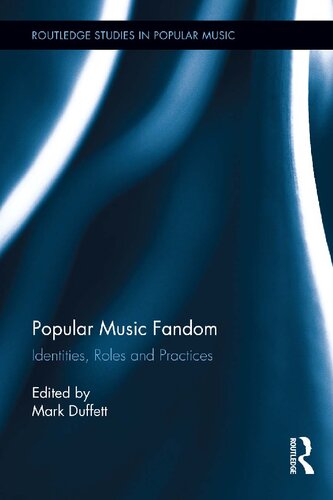

Most ebook files are in PDF format, so you can easily read them using various software such as Foxit Reader or directly on the Google Chrome browser.
Some ebook files are released by publishers in other formats such as .awz, .mobi, .epub, .fb2, etc. You may need to install specific software to read these formats on mobile/PC, such as Calibre.
Please read the tutorial at this link. https://ebooknice.com/page/post?id=faq
We offer FREE conversion to the popular formats you request; however, this may take some time. Therefore, right after payment, please email us, and we will try to provide the service as quickly as possible.
For some exceptional file formats or broken links (if any), please refrain from opening any disputes. Instead, email us first, and we will try to assist within a maximum of 6 hours.
EbookNice Team

Status:
Available4.5
41 reviewsThis book explores popular music fandom from a cultural studies perspective that incorporates popular music studies, audience research, and media fandom. The essays draw together recent work on fandom in popular music studies and begin a dialogue with the wider field of media fan research, raising questions about how popular music fandom can be understood as a cultural phenomenon and how much it has changed in light of recent developments. Exploring the topic in this way broaches questions on how to define, theorize, and empirically research popular music fan culture, and how music fandom relates to other roles, practices, and forms of social identity. Fandom itself has been brought center stage by the rise of the internet and an industrial structure aiming to incorporate, systematize, and legitimate dimensions of it as an emotionally-engaged form of consumerism. Once perceived as the pariah practice of an overly attached audience, media fandom has become a standardized industrial subject-position called upon to sell box sets, concert tickets, new television series, and special editions. Meanwhile, recent scholarship has escaped the legacy of interpretations that framed fans as passive, pathological, or defiantly empowered, taking its object seriously as a complex formation of identities, roles, and practices. While popular music studies has examined some forms of identity and audience practice, such as the way that people use music in daily life and listener participation in subcultures, scenes and, tribes, this volume is the first to examine music fans as a specific object of study.